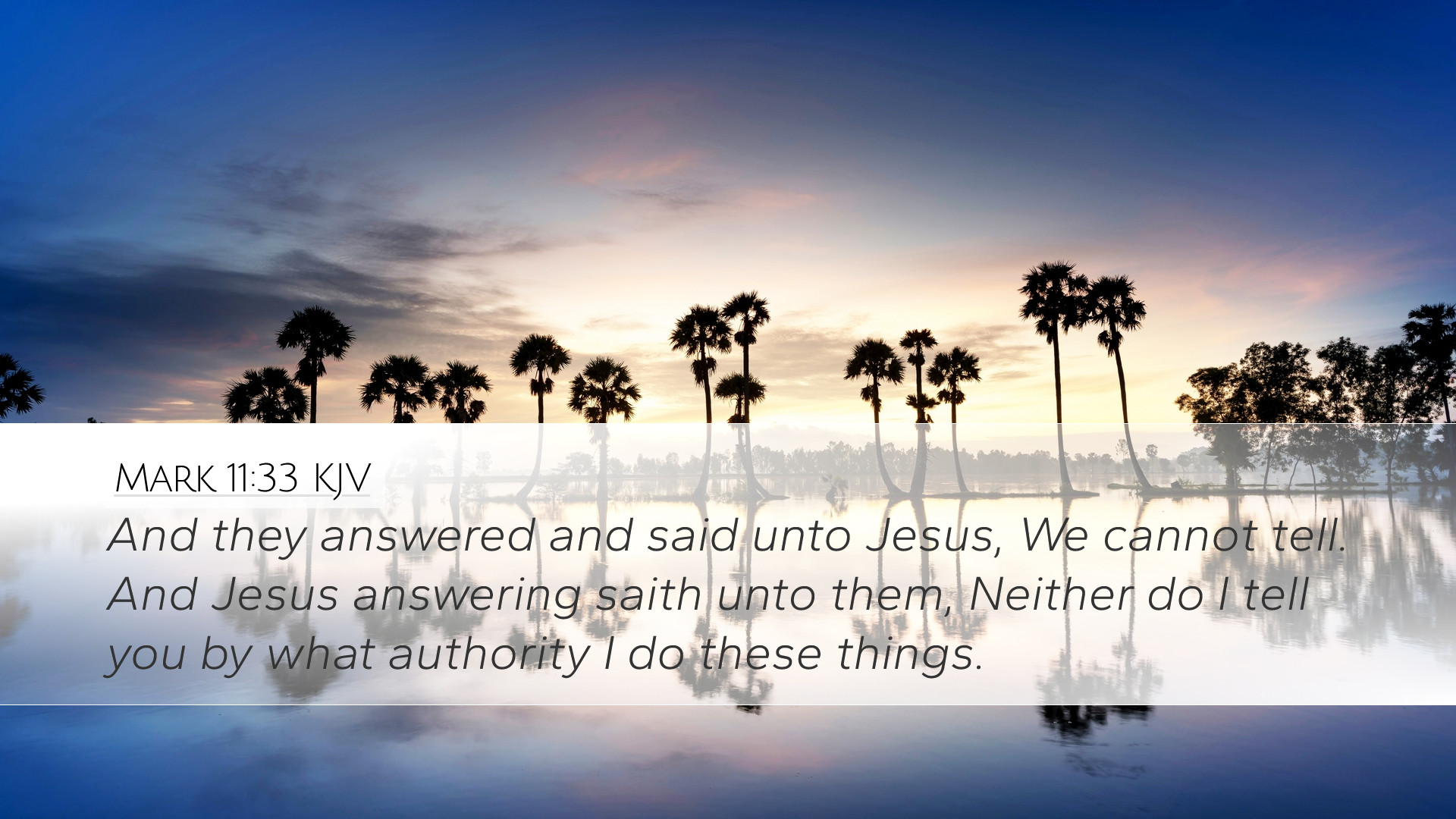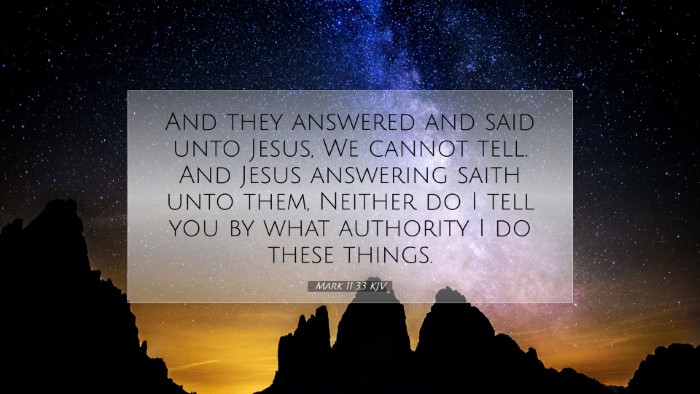Commentary on Mark 11:33
Bible Verse: “And they answered and said unto Jesus, We cannot tell. And Jesus answering said unto them, Neither do I tell you by what authority I do these things.” (Mark 11:33, KJV)
Contextual Background
Mark 11:33 takes place during a significant moment in Jesus' ministry, just after His triumphal entry into Jerusalem and shortly before His crucifixion. The atmosphere is electric with tension, particularly from the religious leaders who question Jesus' authority.
Insights from Public Domain Commentaries
Matthew Henry’s Commentary
Matthew Henry observes that the Jewish leaders faced a dilemma when confronted by Jesus' questions. They understood that acknowledging John's authority would implicate them in recognizing Jesus’ authority, while denying it could lead to public backlash since John was highly regarded among the people. Thus, their refusal to answer is seen as a calculated move to protect their positions rather than a genuine pursuit of truth.
Henry emphasizes that Jesus, in His response, does not yield to their interrogative method, which was intended to trap Him. Instead, He illustrates a profound truth about authority and revelation, implying that true authority is recognized not merely through human testimony but through spiritual discernment.
Albert Barnes’ Notes on the Bible
Albert Barnes provides a thorough analysis of the procedural context wherein the religious leaders attempt to evaluate Jesus' credentials. He outlines that their question embodies a larger challenge against Jesus’ legitimacy as a teacher and Messiah. The leaders' inability to provide a satisfactory answer showcases their spiritual blindness and the degeneration of their authority.
Barnes notes that by not answering, the leaders show their refusal to engage with the truth. Jesus' subsequent statement about not revealing His authority can be interpreted as a warning against their hardness of heart and an illustration of the principle that divine truth often eludes those who are antagonistic towards it.
Adam Clarke’s Commentary
Adam Clarke explains that the context of the inquiry not only reveals the distrust and malice of the religious authorities but also points to the profound implications of Jesus’ authority. Clarke indicates that the lack of an answer from the leaders was not an innocent evasion but a strategic move to maintain their influence over the people.
Clarke also draws attention to the weight of Jesus' authority, affirming that His actions and teachings stem from divine mandate rather than human institution. He invites readers to contemplate the important distinction between human authority, which can often be politically motivated, and the authority that comes from God.
Theological Implications
The interaction captured in Mark 11:33 serves as a crucial turning point in the narrative of Jesus' confrontation with religious authorities. The refusal of the leaders to answer betrays their inner turmoil and highlights significant theological lessons regarding authority, faith, and the recognition of divine truth.
- The Nature of Authority: This passage challenges readers to reflect on the sources of authority in their own lives. Jesus demonstrates that true authority is rooted in divine truth, while human authority can often be clouded by self-interest and fear.
- The Role of Faith: The leaders’ inability to accept John’s baptism as divine foretelling exemplifies a broader issue of faith. Recognition of Jesus’ ministry requires an openness to God’s revelation, which they lack.
- Confrontation with Truth: The segment underscores the notion that encounters with Jesus demand an honest response. The religious leaders exemplified the tendency to evade truth when it contradicts personal or institutional interests.
Conclusion
Mark 11:33 presents a multifaceted view of authority, faith, and the recognition of divine truth. The insights from commentaries provide a rich exploration of the text that is relevant for pastors and theologians today. In a contemporary context, where questions of authority and truth continue to be contentious, this passage serves as a potent reminder of the importance of heeding God’s voice over human opinion.


